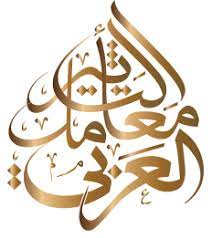Islamic Republic of Iran and Development of Shi’ite Geopolitics
DOI:
https://doi.org/10.36317/kaj/2022/v1.i51.3520Keywords:
Shi’ite, Islamic revolution, Shia geopolitics, Shia movement, movementIranAbstract
With the victory of the Islamic revolution, Shi’i converted to one of the main and important factors in geopolitics world. Shiite rule formation with the majority of Shia population, transform Islamic revolution into the spotlight of the world. Also this massive transformation provide a bed for represent Islamic revolution as the only Shia national government in the world with high influencing Shiite communities around it. So after Islamic revolution along with combination of Shia’s values and educations, the sphere of political influence of Iran has been expanded. World Shias who have been placed around Iran were under influence of Islamic revolution and with regard to symbols such as arrogant strife, fighting with oppression access to identity and self- awareness. Accordingly, Shia geopolitics leading to development of Iran influential domain and in other word, geopolitics space return to Ira, too. So the main question of research is that Islamic revolution in Iran and developments caused by it, upgraded Shia’s geopolitics in the middle-east area and leading to self- awareness and as a result develop Shia’s activity as Shia’s movement and empowerment of parties and political rules around Iran. That finally this lead to developing Shia’s influential domain in Middle-eas
Downloads
References
Escobar, Pepe (2007), "Shitestan", in Michel Korinam and John Laughland, eds., Shia Power: Next Target Iran? London: Vallentine
Mitche; Academic.
احمد شاكر عبد العلاق. (2015). الاتفاقات الاقتصادية الأمريكية-الإيرانية 1973–1976م في تقارير ومراسلات هنري كيسنجر. Journal of the College of Education for Girls for Humanities, (17).
Fazelinia, Nafiseh (2007), Shiite geopolitics and western anxiety about Islamic Revolution. Qom: Shiite Studies publications [In Persian].
Hafeznia, Mohammad Reza (2015), Interview with French Conflict Quarterly. May 2015.
Hafeznia, Mohammad Reza (2017), Principles and concepts of geopolitics (New Edition with revision). Mashhad: Papoli Publications [In Persian].
احمد شاكر عبد العلاق. (2015). موقف إيران من قضايا سياسية في الشرق الأوسط ١٩٧٣-1975 م قِراءة في تقارير وزارة الخارجية الأمريكية. Journal of Kufa Studies Center, 1(39).
Hazbun, Waleed(2010), "US Policy and the Geopolitics of Insecurity (2011)blake Hounshell in the Arab World", Geopolitic, 15, No. 2
.Policy Foreign Word Arab the in Revolution"
.www//:http ,Israel,University Dayan at Speech" (1999) Bernard lewis lewis/mel/dayancenter/il,ac.tau.
Mojtahed Zadeh, Pirouz (2012). Philosophy and Function of Geopolitics (Concepts and Theories in the Age of Cyberspace). Tehran: Samt Publications [In Persian].
Naderi, Ahmad (2015). Shia Geopolitics and Political Islam in the Middle East, Germany: WeltTrends, Potsdam.
. Pishgahi fard, Zahra, Nosrati, Shahriar and Bazdar, Shahnaz (2015). Shiite geopolitics and Iran's territoriality in the eastern Mediterranean. Qom: Shiite Studies Quarterly. Vol. 13, No.49 [In Persian].
Alalaq, A. (2021). Iran’s Freedom Renaissance Party and its Impact on the Contemporary History of Iran 1979-1981 A.D. An Analytical Study of the Party’s Statements. Kufa Journal of Arts, 1(46), 163–210. https://doi.org/10.36317/kaj/2021/v1.i46.647
Skocpol, Theda. (May 1982). "Rentier State and Shi'a Islam in the Iranian Revolution", Theory and Society. Vol 11.
Thual, Francois (2003). Geopolitique du chisme. Translated by Katayun Baser. Tehran: Vistar Publications [In Persian].
levy, Janey (2010). Iran and the Shia. New York: Rosen publishing Group. Marschall, Christens (2003) Iran's Persian Gulf Policy: From Khomeini to khatami.London: Routledge.
Alalaq, A. S. A. (2020). Iran Freedom Renaissance Party and its impact on contemporary Iran history 1979–1981 An analytical study of party data. Adab Al-Kufa, (46).
Al-Kurdy, A. A. M., & shakir Abd Al-Allaqh, A. (2012). The Iranian Kurdstan Democratic party 1963-1979A. D. Adab Al-Kufa, 1(14).
Lutz, Meris (2011), "Iran's supreme leader calls uprisings an 'Islamic awakening", Los Angeles Times, February 04, 2011, see online on:
http://articles.latimes.com/2011/feb/0.4/world/la-fg-khamenei-iran-egypt- 20110205 access: August 2011
المدرس الدكتور علاء الدين محمد تقي الحكيم و المدرس الدكتور احمد شاكر عبد العلاق. (2016). التوجهات الامريكية-السوفيتية تجاه ايران 1978-1980 م دراسة في ضوء وثائق منشورة. Journal Of Ma'aen, (6).
Downloads
Published
How to Cite
Issue
Section
License
Copyright (c) 2022 Morteza Alawian, Seyyed Saleh Mousawi

This work is licensed under a Creative Commons Attribution 4.0 International License.



















